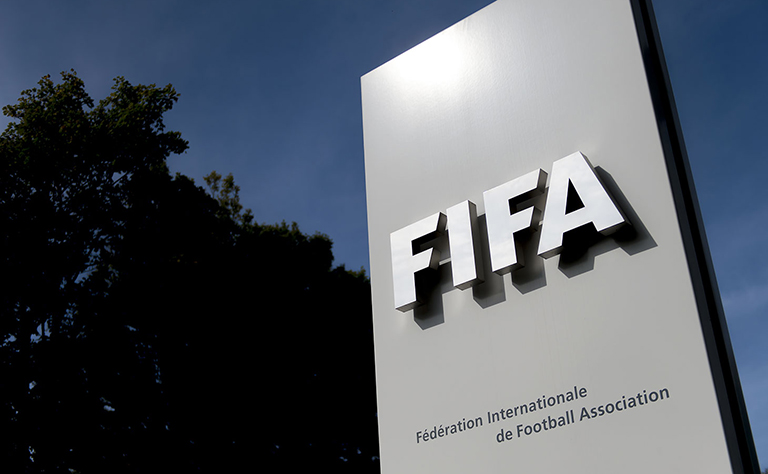
New York – Saba:
The International Federation of Association Football (FIFA) announced new decisions on Sunday concerning the health and well-being of male and female players, including rest periods, breaks, and measures to protect them from occupational risks.
The decisions followed a meeting between FIFA and representatives of player unions from around the world in New York, held on the sidelines of the ongoing FIFA Club World Cup hosted by the United States.
In a statement, FIFA explained that player union representatives and FIFA reached a consensus on the need for a 72-hour rest period between matches and agreed that players should have at least 21 days of rest at the end of each season.
"There is agreement on the necessity of having at least 72 hours of rest between matches and ensuring players receive a minimum of 21 days off at the end of each season. This period should be managed individually by each club and its players, based on their match schedules, while considering existing collective agreements," FIFA stated.
The meeting emphasized the importance of planning a weekly rest day in coordination between players and club management, taking into account travel demands—especially long intercontinental trips—and climatic conditions when scheduling future international matches.
FIFA and player union representatives also agreed on the need to strike a better balance between national team and club football, as well as between domestic, continental, and global club competitions.
Additionally, they highlighted the importance of creating opportunities for players worldwide to compete in major tournaments, as this fosters the growth of global football.
The meeting reviewed upcoming joint projects between FIFA and player organizations, focusing particularly on player recovery and well-being, as well as competitions within the international match calendar.
Discussions also covered the development and growth of women's football, the FIFA Professional Football Players' Fund, and the enhancement of training and education programs for young and professional players. The meeting further addressed essential safeguards to protect players in various aspects.
The International Federation of Association Football (FIFA) announced new decisions on Sunday concerning the health and well-being of male and female players, including rest periods, breaks, and measures to protect them from occupational risks.
The decisions followed a meeting between FIFA and representatives of player unions from around the world in New York, held on the sidelines of the ongoing FIFA Club World Cup hosted by the United States.
In a statement, FIFA explained that player union representatives and FIFA reached a consensus on the need for a 72-hour rest period between matches and agreed that players should have at least 21 days of rest at the end of each season.
"There is agreement on the necessity of having at least 72 hours of rest between matches and ensuring players receive a minimum of 21 days off at the end of each season. This period should be managed individually by each club and its players, based on their match schedules, while considering existing collective agreements," FIFA stated.
The meeting emphasized the importance of planning a weekly rest day in coordination between players and club management, taking into account travel demands—especially long intercontinental trips—and climatic conditions when scheduling future international matches.
FIFA and player union representatives also agreed on the need to strike a better balance between national team and club football, as well as between domestic, continental, and global club competitions.
Additionally, they highlighted the importance of creating opportunities for players worldwide to compete in major tournaments, as this fosters the growth of global football.
The meeting reviewed upcoming joint projects between FIFA and player organizations, focusing particularly on player recovery and well-being, as well as competitions within the international match calendar.
Discussions also covered the development and growth of women's football, the FIFA Professional Football Players' Fund, and the enhancement of training and education programs for young and professional players. The meeting further addressed essential safeguards to protect players in various aspects.